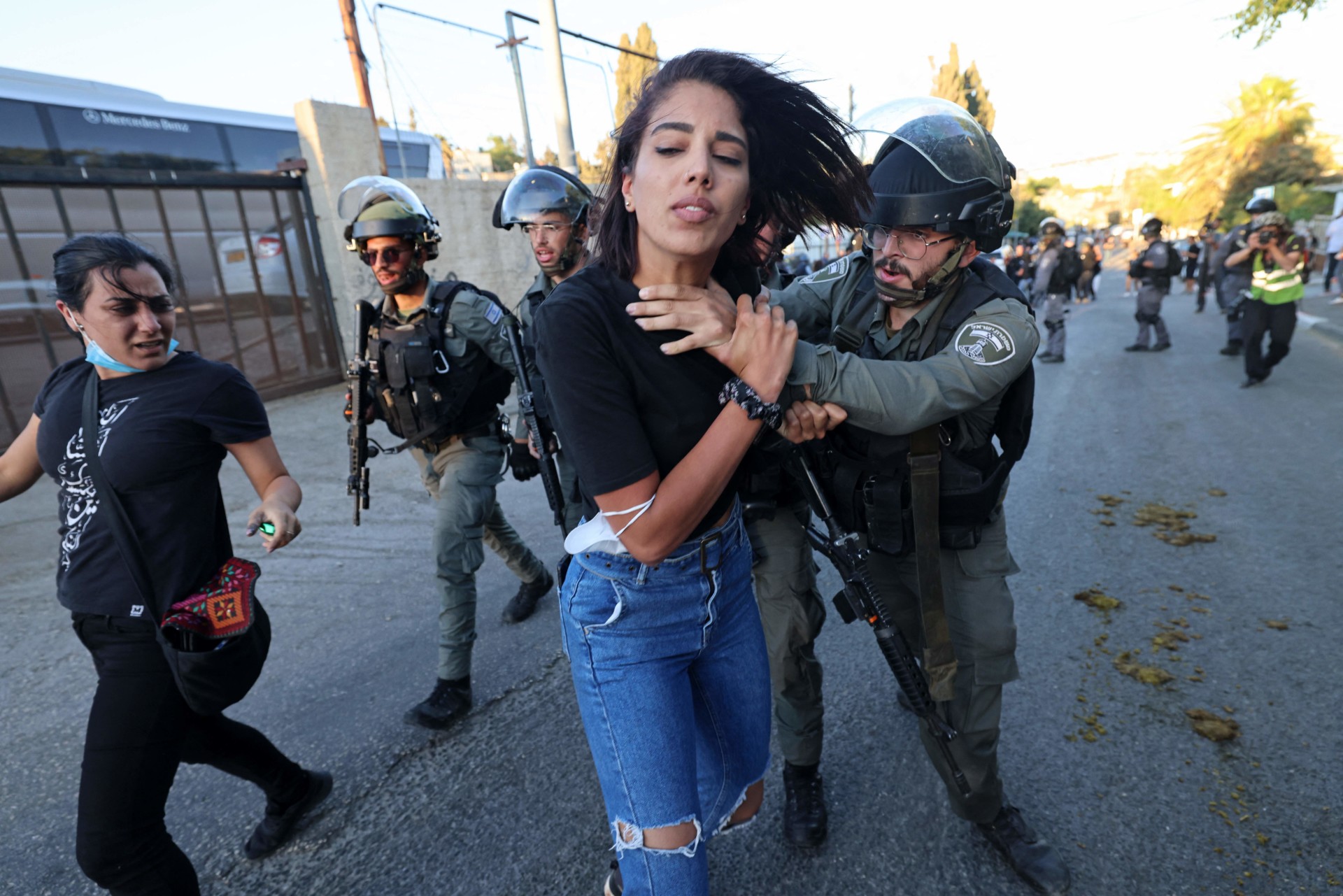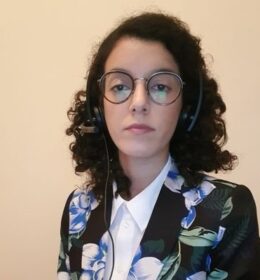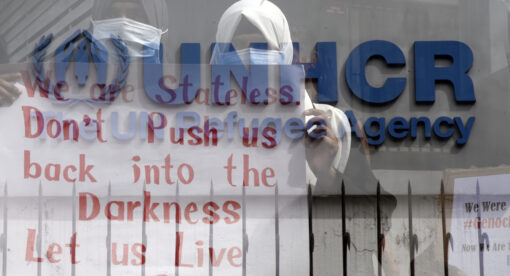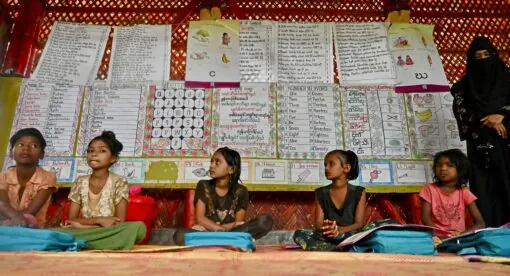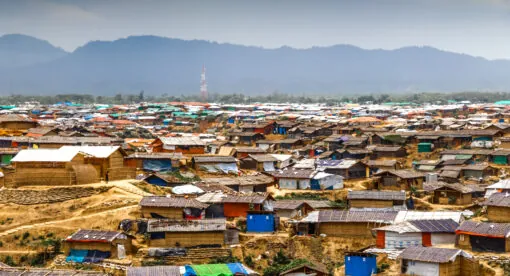Palestinians in Jerusalem, in Israel within the Green Line, and the territories occupied in the 1967 War have learned over time – and from each other – how to deal with Israel’s evolving methods of targeting activists and institutions for shutdowns. This will make it harder for Israel to isolate opposition to one area.
Editor’s Note: This Net Assessment is split into two parts, with this first one focusing on Jerusalem and the Green Line and the forthcoming one on the 1967 occupied territories. The division along this line reflects the timeline of events while fully acknowledging the shared demands and concerns of Palestinians across these spaces during the “Unity Intifada.”
Israel has undermined Palestinian activism and civil society since 1994, after the Oslo Accords. Despite the obstacles created by Israel, Palestinians have exercised incredible ingenuity, harnessing their energy to mobilize in innovative ways. New generations of activists have also led the way more effectively on social media platforms. All of this has helped shift the narrative on the Palestinian cause. International organizations and media continue to produce assessments that ignore the root cause of violence and repression and often center Western voices at the expense of Palestinians. Yet Palestinian activists within the Green Line, in the territories, and in the diaspora have accomplished a victory on the narrative front, particularly in the latest wave of mobilization both in Israel and the territories and in the diaspora. Moreover, the geographic breadth of Palestinian activism and civil society will make it harder for Israel to isolate opposition and mobilization to just one area.
These developments have occurred despite Israel’s targeting of Palestinian civil society activism in the past decade. As a result of the Oslo framework, grassroots organizations were co-opted and swept up in a process termed “NGO-ization,” as international donors demanded they “professionalize.” Research has shown how such funding considerations have served as a form of political pacification for these groups. Others who did not engage in this way simply ceased to function. Palestinian civil society organizations were attacked in Jerusalem as well, with Israeli authorities closing down both political and non-political organizations that served Palestinians in the city, including such institutions as the Palestinian theater and the Chamber of Commerce.
Palestinians are the ones who endure these attacks, but all those who profess a desire for a peaceful resolution to the Israeli occupation – one which is not predicated on the brutal repression of one party, whatever it may look like – should pay attention to these dynamics. Moreover, if there is concern over the use of violence and further bloodshed, then policymakers should take note of increased Israeli repression, which has eroded Palestinian support for the prospect of peace as well as the viability of nonviolent methods.
Jerusalem
Palestinians in Jerusalem have a unique relationship to the Israeli political authority. They do not hold Israeli citizenship, unlike the Palestinian minority within the Green Line, and they also do not hold Palestinian citizenship. They are provided very few services in exchange for exorbitant taxes, and are at constant risk of displacement via strategic use of the separation wall, home seizure, and discriminatory housing policies. Palestinians in Jerusalem are also completely disenfranchised, having no say in the political processes that govern them (the Israeli government or the Palestinian Authority). Palestinian institutions in the city have been systematically targeted and often closed, and Palestinian political parties are not allowed to function.
Although Palestinians in Jerusalem number approximately 370,000, and thus, constitute only 5% of the total Palestinian population between the river and the sea, Israel’s attempts to marginalize, fragment, and disempower this community has led to unique political openings. Palestinians in Jerusalem face the Israeli occupation and its discriminatory policies without political intermediaries. Meanwhile Palestinians in the West Bank navigate labyrinthine forms of spatial and political control as well as layers of repressive political authority.
Given their lack of citizenship, Palestinians in Jerusalem also have a different relationship to the state than Palestinian citizens of Israel. With no opportunity for political participation, however marginal, their relationship to the state is more antagonistic. The regular threat of displacement and unique constellation of grievances, as well as in some sense a degree of freedom from political encumberment posed by stagnating Palestinian institutions elsewhere, has led Jerusalemites to consistently challenge the occupation, with the city acting as a focal point for Palestinian mobilization more broadly.
This is not because Israel allows more civil society organizing than the Palestinian authorities; as previously mentioned, Palestinian activists are routinely under attack, their organizations are shut down, and they face highly punitive measures for any type of political involvement. But given the more direct contact with Israeli occupation forces and policies, Palestinians in Jerusalem must resist more actively by necessity. In their resistance, they galvanize and educate activists in other parts of the territories.
The protests that erupted in April 2021 as a result of repression during the month of Ramadan and the concurrent battle over the expulsion of families in Sheikh Jarrah were by no means the first in Jerusalem. Palestinians in Jerusalem have engaged in periodic waves of protest, each acting as an iterative process of learning and coordination that Jerusalemites have been able to build on in subsequent waves.
Throughout these waves, civil society in Jerusalem has remained active despite little international attention or material support. Groups such as Al-Haq, Grassroots Al-Quds, Jerusalem Legal Aid and Human Rights, Jerusalem Center for Human Rights, and others work on legal aid for families facing displacement, advocacy within the Israeli municipality that governs Palestinians, documentation of human rights abuses, and facilitating popular mobilization. Religious groups, some with ties to the Islamic Movement within Israel, have also played a role in maintaining a Palestinian presence in the Al-Aqsa compound.
Today, activists say that the key to continued mobilization, in order to sustain the challenge to Israel’s ongoing occupation, is to harness the momentum of the April/May protests. In the last wave, activists within formal civil society groups, such as Grassroots Al-Quds, utilized their social media presence and their expertise in crafting statements and information for wider use. According to an interview with the director Fayrouz Sharqawi, members did not lead protests such as the ones in Sheikh Jarrah or in support of political prisoners; they amplified the protests’ impact. Civil society organizers were also active in promoting and facilitating the economic strike of May 18. Such methods are indicative of how civil society organizations, which serve the residents of the city, are activated in other ways when political opportunities arise.
Palestinians Within Israel
“There is no time. We have one goal this week: to plant in every Palestinian person’s head the idea that their personal interest and personal gain cannot be separated ever ever ever from the interest and gain of your family and society and people.”
– Majd Kayyal, Palestinian Activist, Palestine Economic Week, June 5, 2021
The 2 million Palestinians who live within the 1948 boundaries of Israel have long been targeted by the state, sometimes in very similar ways to Palestinians elsewhere, despite their citizenship status. Nevertheless, they are citizens on paper, with passports and alleged representation by the Israeli government, and thus certain institutions – such as the Knesset – are open to them for certain types of engagement. The organization that has coordinated Palestinian communities within the Green Line has traditionally been the High Follow-up Committee, encompassing both political parties and movements that engage with the Knesset and those who do not.
But these traditional groups have struggled to maintain relevance and remain popular with the Palestinian community in the Green Line, in the face of both Israeli repression and the increasingly right-wing turn of Israeli politics. Arab political parties have struggled with leadership expulsions, difficulty in maintaining unity, and a lack of shared vision for the future of Palestine. Moreover, the Israeli authorities outlawed the Islamic Movement (Northern Branch), which had generated some of the coordination across the Green Line between citizens and their occupied compatriots in Jerusalem in the last few years.
Although the Islamic Movement was dismantled, the movement-building that it engaged in – at least with a particular segment of Palestinian society – has clear ramifications today. For instance, in the latest wave of protests, many Palestinian citizens of Israel who had been influenced by the discourse and organization of the Islamic Movement organized, without the direction of its leadership, to send buses to Jerusalem in solidarity with Palestinians protesting there.
Across the rest of the political spectrum, party leaders are seen as tied up with the Israeli state, bickering over Knesset seats and coordinating with Israeli right-wing extremists (such as in the case of Mansour Abbas and the Raam party, also known as the United Arab List), rather than addressing the issues facing Palestinians at large. As a result, traditional institutions and leaders of those organizations are increasingly unpopular with political activists. Activists reject their control over the community, their insistence on clientelist relationships, and their framing of the Palestinian struggle as simply an issue of citizenship. For these reasons, the High Follow-up Committee is seen increasingly as an obstacle to effective mobilization.
Instead, in the latest wave of protests, local popular committees have emerged in several towns, villages, and cities in response to state repression. These groups seem to have broken the monopoly of traditional institutions and are now coordinating with other communities and civil society organizations, including those in Jerusalem. Their activities include legal aid to political prisoners, solidarity tours linking Palestinians from different towns, organizing protests of police repression, and more. Long-established organizations such as Adalah provide resources and documentation, but many other grassroots efforts have emerged concurrently.
Activists reiterate that social cohesion is key to the success of these efforts and are actively trying to build solidarity between communities and within communities. One activist notes, “We will build the idea in every Palestinian that their personal interest and personal gain is impossible to separate from the collective interest, the interest of your family, and society, and people.” They have done so by highlighting women’s participation, as well as changing the discourse around the grievances of Palestinian communities within Israel.
Rather than being an issue of incomplete or unfulfilled citizenship, activists are highlighting the ways in which their long-percolating anger at the state and the repression of their communities is tied to the Israeli state’s logic toward Palestinians overall, which seeks to dominate and replace the indigenous population. This takes on many forms: violent ethnic cleansing such as the Nakba, choking Palestinian communities economically to drive migration away from the homeland, and using limited citizenship as a way to “classify populations, produce difference, and exclude, racialize, and eliminate indigenous peoples” and as a “politics of distraction that works to contain native subjectivities and struggles within the liberal grammar of rights.”
This understanding is the basis of activism within the Green Line today. Indeed, Palestinian citizens of Israel are taking the lead on actions that engage with Palestinians across all the different geographies for this reason. Such a dynamic poses the biggest challenge to Israel moving forward, as intentional fragmentation of the Palestinian people – using citizenship – ceases to function. Mobilization and opposition will become almost impossible to isolate to a particular community or locale. Palestinians will not limit their grievances to the occupation of the West Bank or the blockade of Gaza, in spite of a decades-long attempt by the international community to narrow the contours of the conflict to precisely that. Moving forward, opposition to Israel and the character of the Israeli state will come from many fronts.
Dr. Dana El Kurd is an Assistant Professor of Political Science at the University of Richmond. She is the author of “Polarized and Demobilized: Legacies of Authoritarianism in Palestine” (Oxford University Press, 2020). Dr. El Kurd’s work focuses on authoritarian regimes in the Arab world, state-society relations in these countries, and the impact of international intervention. She earned a Ph.D. in Government with concentrations in Comparative Politics and International Relations from the University of Texas at Austin and tweets at @danaelkurd.
The views expressed in this article are those of the author and not an official policy or position of the Newlines Institute.

